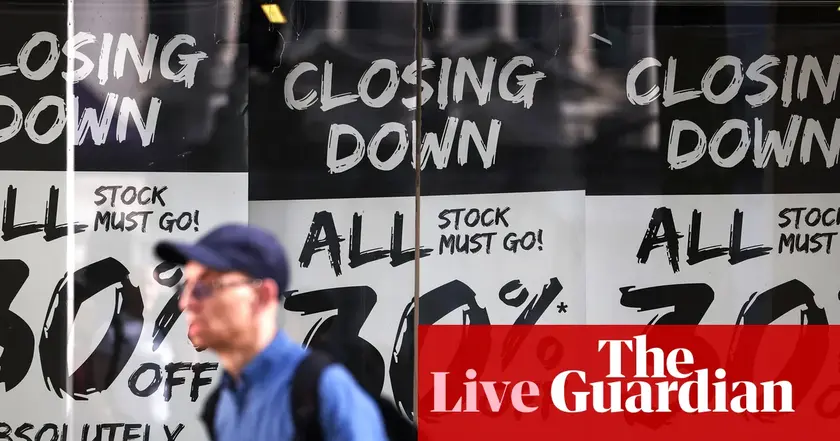T4K3.news
UK July retail gains seen but policy risk looms
Warm weather and sporting events boosted July sales, but tax plans could undermine gains and threaten jobs in retail.

A warm July and strong sporting events helped retail sales rise, but economists warn tax plans could erode gains and jobs.
Warm July lifts UK retail sales amid Euros boost
UK retail sales rose 2.5% year on year in July, according to the BRC-KPMG data, driven by weather and a run of major events. Shoppers bought more food as England reached the Euros final and the Lions rugby tour drew crowds, while clothing, homeware and indoor furniture also posted gains. The gains followed a sluggish June, when growth was a mere 0.5% on an annual basis. Separately, Circana noted a boost to toy sales this year, while Barclaycard reported a 1.4% rise in card spending and a stronger tilt toward discretionary items, up 2.4%, with essential spending down 0.7%. Consumer sentiment shows a split picture: confidence in personal finances remains resilient, but views on the broader economy slipped to a low not seen since January.
The upturn is described as modest by retailers and analysts. Tesco-style inflation pushes shoppers to spend where possible, but margins stay tight. The BRC chief executive warned that anticipated tax rises and higher wage costs could pressure retailers in the autumn budget, potentially leading to store closures or job losses if costs rise further. AI tools are increasingly used by households to budget and plan, reflecting a shift in how families manage money amid inflation and wage growth.
Key Takeaways
"With sales growth at these levels, it is barely touching the sides of covering the new costs imposed on retailers at the last budget"
BRC chief executive commenting on cost pressures
"If the upcoming autumn budget sees more taxes levied on retailers’ shoulders, many will be forced to make difficult choices about the future of shops and jobs"
Helen Dickinson on policy risk
"With employment costs having risen and inflation both a business and consumer side pressure, it remains a challenging trading environment for many retailers"
Linda Ellett, KPMG
"Consumers are using artificial intelligence to manage their personal finances"
Barclaycard on spending planning
The July bounce signals resilience in consumer pockets but highlights a fragile footing. The timing of the lift—weather, sports fixtures and entertainment tickets—suggests a temporary spillover that could fade if policy tightens incomes. Retailers face a double squeeze: higher employment costs and a high minimum wage, alongside uncertain tax plans. Inflation remains a constraint, even as wage gains bolster disposable income for many households. The data imply a divide: households with savings and stable incomes can keep spending on discretionary items, while others may cut back as prices rise and job security feels less certain.
Highlights
- Shoppers watch every pound as prices rise
- AI is becoming a budget tool in real life
- Tax plans could tilt the balance against high street stores
- Sport and sunshine boosted July numbers, fragile turf
Tax policy risk to retailers and jobs
The report highlights the potential impact of an autumn budget with higher taxes on retailers, which could lead to store closures and job losses, raising political and public reaction concerns.
The coming months will reveal whether July’s uptick translates into sustainable momentum or fades under policy and price pressures.
Enjoyed this? Let your friends know!
Related News

Markets rise as Ukraine talks loom

FTSE 100 hits new high on tariff cues

US-EU trade deal limits tariffs to 15%

Company insolvencies drop in England and Wales

Bitcoin Surges Above $120K

July retail sales show resilience amid price pressure

Thames Water contingency plans approved

UK firms report record low business confidence
